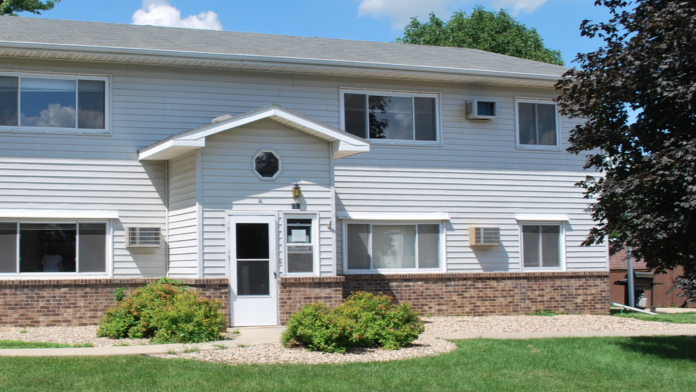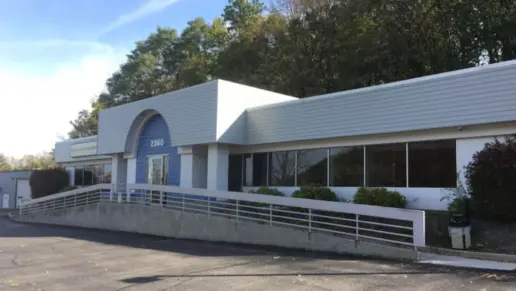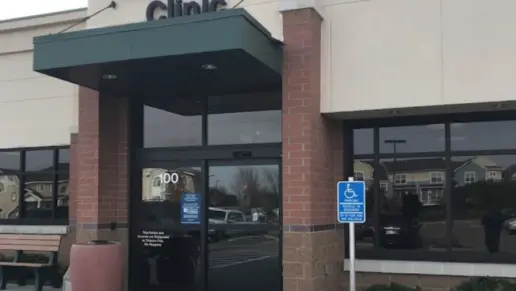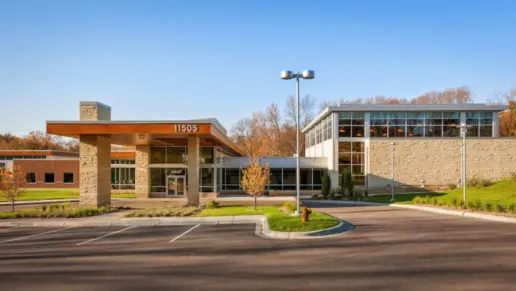All this place did was get me back on meth abd never help me. Nasty and full of bed bugs. Workers claimed to never be trained. Bunch of homeless people here. Don't go here if you truly want help. They ruined my life.
About Austin Manor
Austin Manor, an Intensive Residential Treatment Services (IRTS) program, includes time-limited residential services to individuals in need of a structured setting. IRTS are designed to develop and enhance psychiatric stability, personal and emotional adjustment, self-sufficiency, and the necessary skills to live in a more independent setting.
The services provided within our program are planned and coordinated with local mental health resources. We provide supportive services 24 hours a day, seven days a week. Individuals in the IRTS program may also access and receive services outside our facility for which they are eligible. The following services are provided within Thrive Behavioral Network’s IRTS programs:
• Individualized Assessment & Treatment Planning
• Crisis Intervention
• Nursing Services
• Inter-agency Case Coordination
• Transition & discharge planning
• Independent Living skills development
• Medication Management
• Vocational Skills
• Illness Management & Recovery Program
• Integrated Dual Diagnosis Treatment
• Family Education
Austin Manor staff members include experienced individuals who receive ongoing training including:
• Crisis Intervention
• Vulnerable Adult Protection
• Safety & Health Instruction
• Trauma Informed Care
• Co-Occurring Disorders
• Illness Management & Recovery
• Family Education
• CPR/First Aid
• Suicide Risks
• Motivational Interviewing
• Medication Management
• Individual Treatment Plan Development & Implementation
• Healthy Lifestyle Skills
• Client Rights
• Therapeutic Intervention
• Community Integration
Austin Manor places the highest value on the following:
• Mutual respect
• Meaningful programming
• Personalized care
• Safe, comfortable, pleasant environments
• Experienced, trained staff
• Client-centered care
Thrive Behavioral Network’s IRTS programs operate with a Rule 36 license from the Minnesota Department of Human Services and is certified as a Board and Lodge facility. Austin Manor accepts Medical Assistance and many other sources of funding. For more information please contact us.
Austin Manor partners with community health resources to offer comprehensive care. Some of these local area resources include:
• Southeast MN CREST Adult Mental Health Initiative
• Austin Medical Center
• Mower County Social Services
Local Area Attractions:
• Many local parks
• Public libraries
• The Spam Museum
• Historic homes
• History Farm
• Mower County Historical Center
• Theaters
• Many area churches and places of worship/meditation
Rehab Score
Gallery

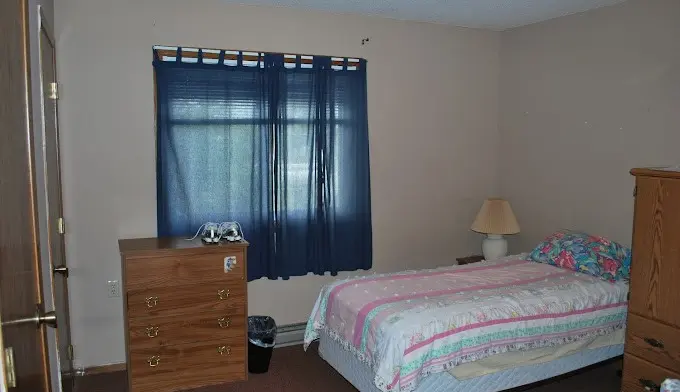
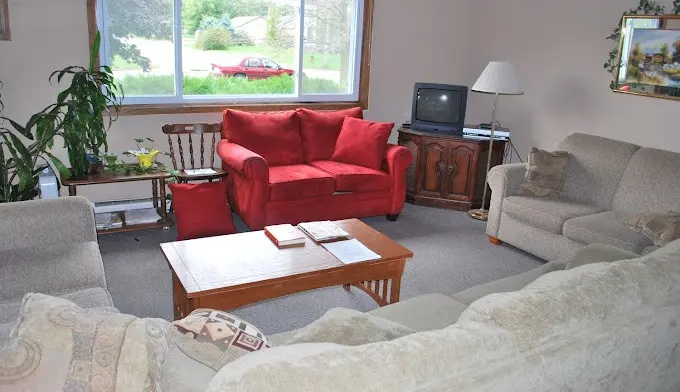
Location
Other Forms of Payment
Private insurance refers to any kind of healthcare coverage that isn't from the state or federal government. This includes individual and family plans offered by an employer or purchased from the Insurance Marketplace. Every plan will have different requirements and out of pocket costs so be sure to get the full details before you start treatment.
Self-pay involves paying for treatment out of your own pocket. You can use savings or credit, get a personal loan, or receive help from family and friends to fund your treatment. If you don't have insurance or your insurance plan doesn't cover a specific program, self-pay can help ensure you still get the care you need.
Financial aid can take many forms. Centers may have grants or scholarships available to clients who meet eligibility requirements. Programs that receive SAMHSA grants may have financial aid available for those who need treatment as well. Grants and scholarships can help you pai for treatment without having to repay.
Medicaid is a state based program that helps lower-income individuals and families pay for healthcare. Medicaid covers addiction treatment so those enrolled can use their coverage to pay for rehab. When a program accepts Medicaid the client often pays very little or nothing out of their own pocket.
Addiction Treatments
Levels of Care
Treatments
The goal of treatment for alcoholism is abstinence. Those with poor social support, poor motivation, or psychiatric disorders tend to relapse within a few years of treatment. For these people, success is measured by longer periods of abstinence, reduced use of alcohol, better health, and improved social functioning. Recovery and Maintenance are usually based on 12 step programs and AA meetings.
Drug addiction is defined as an inability to stop using drugs even though it causes negative consequences in your life. Drug rehab in Minnesota provides treatment for drug addiction in a variety of settings including inpatient treatment and outpatient treatment.
Many of those suffering from addiction also suffer from mental or emotional illnesses like schizophrenia, bipolar disorder, depression, or anxiety disorders. Rehab and other substance abuse facilities treating those with a dual diagnosis or co-occurring disorder administer psychiatric treatment to address the person's mental health issue in addition to drug and alcohol rehabilitation.
A combined mental health and substance abuse rehab has the staff and resources available to handle individuals with both mental health and substance abuse issues. It can be challenging to determine where a specific symptom stems from (a mental health issue or an issue related to substance abuse), so mental health and substance abuse professionals are helpful in detangling symptoms and keeping treatment on track.
Opioid rehabs specialize in supporting those recovering from opioid addiction. They treat those suffering from addiction to illegal opioids like heroin, as well as prescription drugs like oxycodone. These centers typically combine both physical as well as mental and emotional support to help stop addiction. Physical support often includes medical detox and subsequent medical support (including medication), and mental support includes in-depth therapy to address the underlying causes of addiction.
Programs


Clinical Services
Experiential therapy is a form of therapy in which clients are encouraged to surface and work through subconscious issues by engaging in real-time experiences. Experiential therapy departs from traditional talk therapy by involving the body, and having clients engage in activities, movements, and physical and emotional expression. This can involve role-play or using props (which can include other people). Experiential therapy can help people process trauma, memories, and emotion quickly, deeply, and in a lasting fashion, leading to substantial and impactful healing.
Research clearly demonstrates that recovery is far more successful and sustainable when loved ones like family members participate in rehab and substance abuse treatment. Genetic factors may be at play when it comes to drug and alcohol addiction, as well as mental health issues. Family dynamics often play a critical role in addiction triggers, and if properly educated, family members can be a strong source of support when it comes to rehabilitation.
Group therapy is any therapeutic work that happens in a group (not one-on-one). There are a number of different group therapy modalities, including support groups, experiential therapy, psycho-education, and more. Group therapy involves treatment as well as processing interaction between group members.
In individual therapy, a patient meets one-on-one with a trained psychologist or counselor. Therapy is a pivotal part of effective substance abuse treatment, as it often covers root causes of addiction, including challenges faced by the patient in their social, family, and work/school life.
Life skills trainings involve all the skills a person must have in order to function successfully in the world. These include time management, career guidance, money management, and effective communication. Truly successful addiction recovery is based on the ability to not only live substance-free, but to thrive. Life skills teaches the practical necessities of functioning in society, which sets clients up for success in life, and therefore sobriety.
Motivational Interviewing (MI) is a clinical approach to helping people with substance abuse issues and other conditions shift behavior in positive ways. It is more goal-oriented than traditional psychotherapy, as MI counselors directly attempt to get clients to consider making behavioral change (rather than wait for them to come to conclusions themselves). Its primary purpose is to resolve ambivalence and help clients become able to make healthy choices freely.
Trauma therapy addresses traumatic incidents from a client's past that are likely affecting their present-day experience. Trauma is often one of the primary triggers and potential causes of addiction, and can stem from child sexual abuse, domestic violence, having a parent with a mental illness, losing one or both parents at a young age, teenage or adult sexual assault, or any number of other factors. The purpose of trauma therapy is to allow a patient to process trauma and move through and past it, with the help of trained and compassionate mental health professionals.
Accreditations

State Licenses are permits issued by government agencies that allow rehab organizations to conduct business legally within a certain geographical area. Typically, the kind of program a rehab facility offers, along with its physical location, determines which licenses are required to operate legally.
State License: Minnesota
License Number: 804119
Contact Information
510 23rd Avenue NW
Austin, MN 55912
